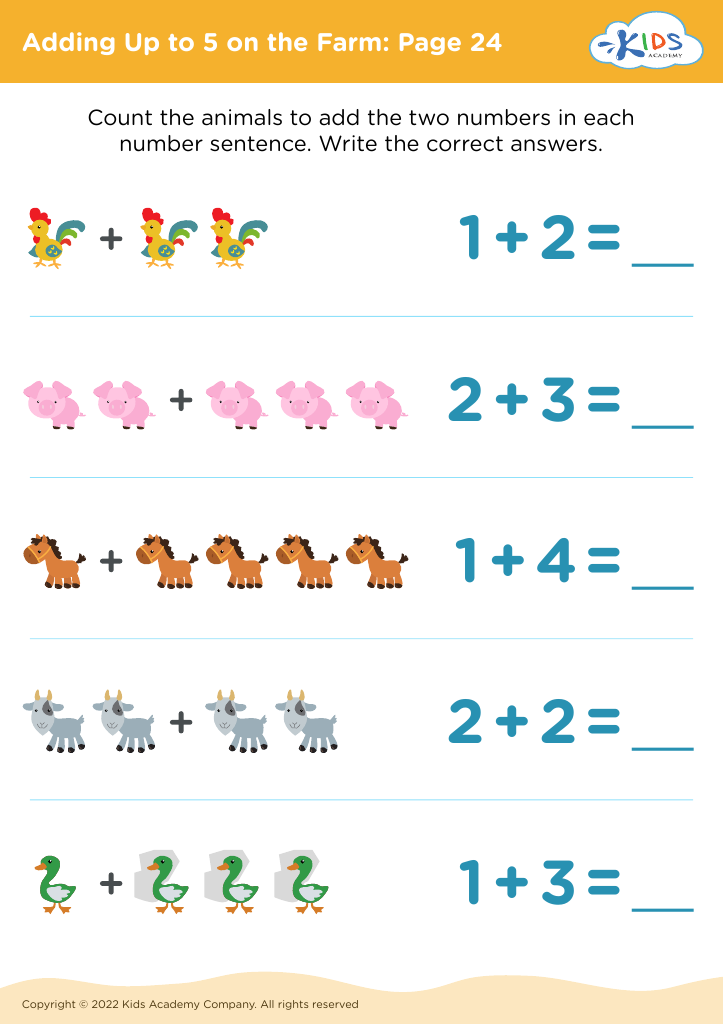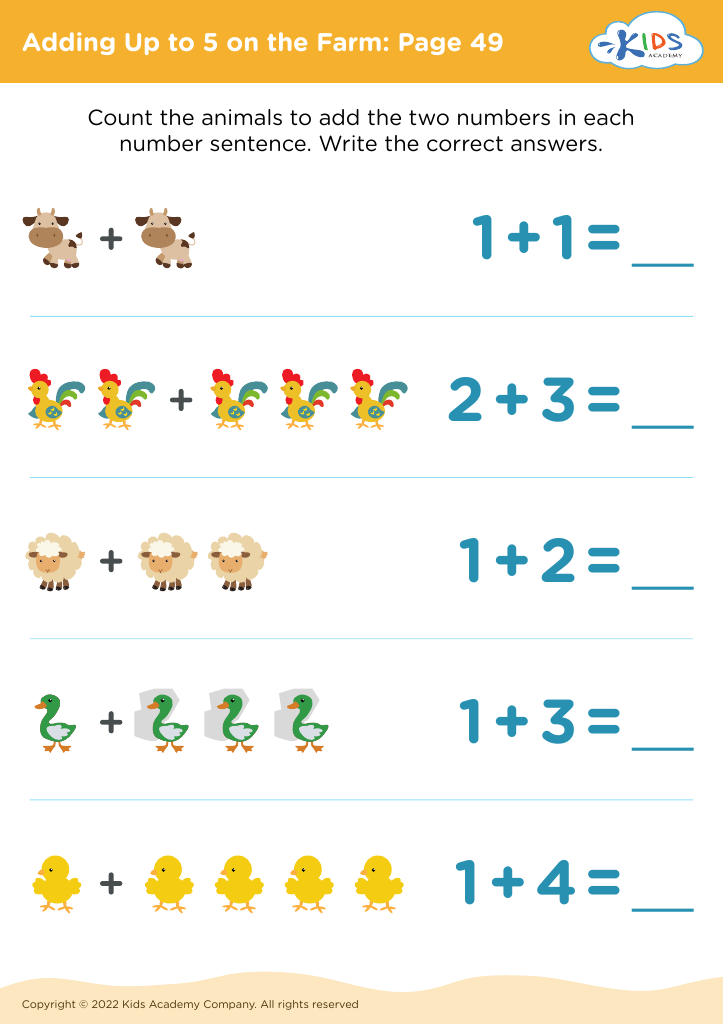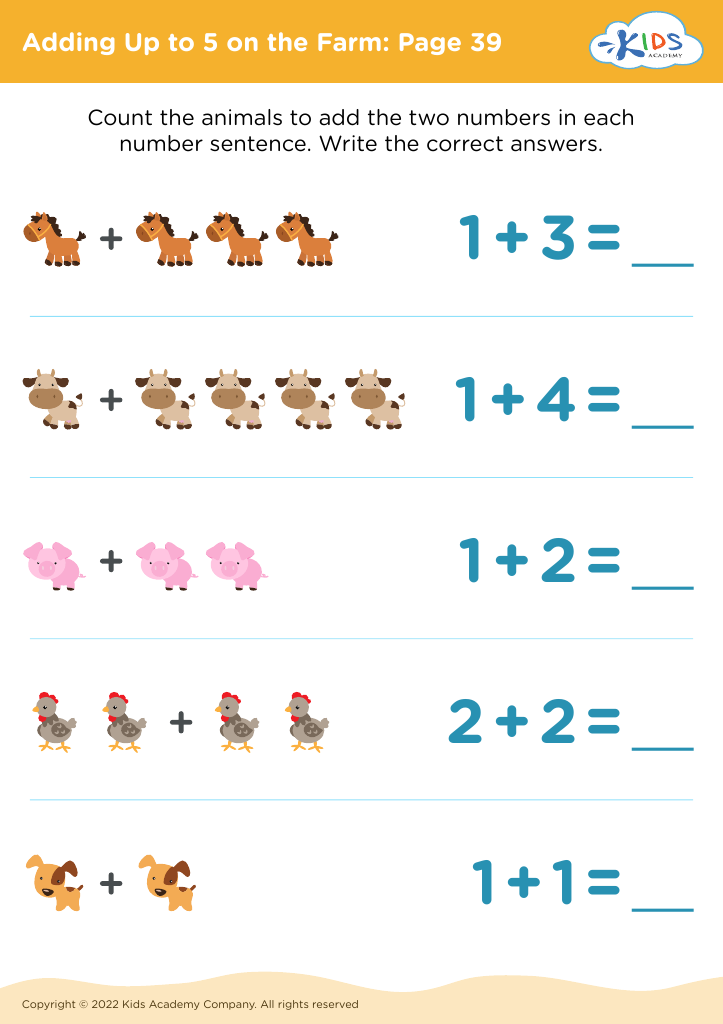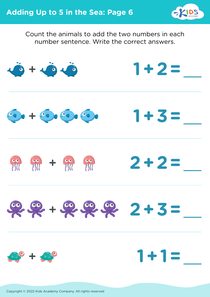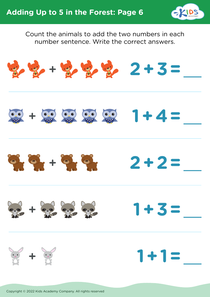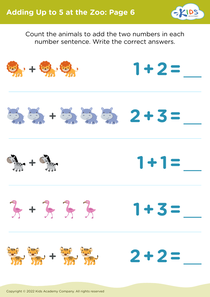Fine motor skills (writing numbers) Adding on the Farm Worksheets for Ages 3-7
3 filtered results
-
From - To
Enhance your child's fine motor skills with our "Fine Motor Skills (Writing Numbers) Adding on the Farm Worksheets," specifically designed for ages 3-7. These engaging worksheets combine fun farm themes with essential math practice, helping young learners master number writing while exploring addition concepts. Each page offers catchy visuals to keep kids excited as they trace numbers and solve simple addition problems related to farm life. Perfect for reinforcing fine motor development alongside early math skills, these worksheets are an excellent resource for home schooling, classroom activities, or simply family fun! Get started today and watch your child's confidence grow!
Fine motor skills are crucial for young children's overall development, especially from ages 3 to 7. These skills encompass the ability to use small muscles in the hands and fingers, which are essential for tasks like writing numbers, cutting, and manipulating small objects. When children learn to write numbers through engaging activities—such as adding on the farm—they enhance their coordination, dexterity, and hand-eye coordination, all of which are vital for successful academic performance and daily living tasks.
When parents and teachers prioritize fine motor skill development, they foster necessary cognitive and social-emotional skills as well. Activities like "adding on the farm" not only introduce basic math concepts but also create opportunities for hands-on learning. Children learn by exploring, which encourages creativity and boosts self-confidence. Collaborating with peers in these activities also promotes teamwork and communication skills.
Moreover, strong fine motor skills contribute to a child’s readiness for school, as they need these skills for writing tasks and later on for more complex academic work. By investing time in activities that build fine motor skills, parents and teachers equip children with essential tools for learning and daily activities, setting a strong foundation for future success.
